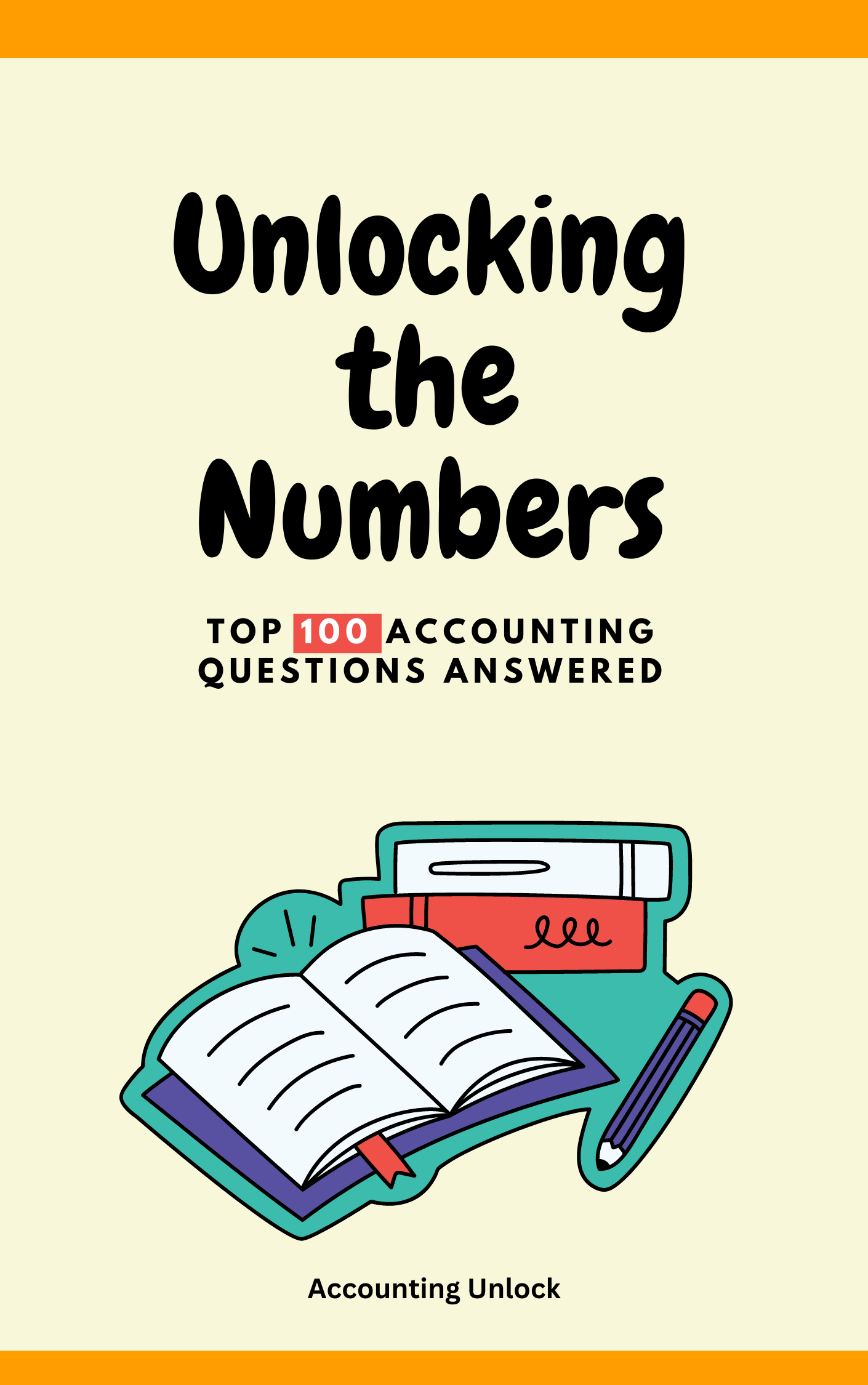Greetings, curious minds! Today, we’re setting sail on a thrilling adventure through time, unraveling the captivating tale of accounting’s journey – from the ancient roots of counting to the digital landscapes of today. It’s a journey that spans civilizations, introduces remarkable innovators, and reveals the secrets of a discipline that has played a crucial role in shaping our world.
But why should you care about the history of accounting? Well, understanding the origins of this financial wizardry not only brings the past to life but also lays the foundation for comprehending the incredible world of numbers and transactions that surrounds us.
So, buckle up as we embark on this unique expedition, exploring the historical landscapes where numbers transformed into stories and where the roots of accounting reached deep into the sands of time. Welcome to “Counting Through Time: A Fun Journey into the Brief History of Accounting” – where history and numbers come together to tell a story that’s as fascinating as it is informative. Let’s dive into the past and unlock the secrets that have shaped the financial world we know today!
Table of Contents
1. Ancient Roots of Accounting:
1.1 The Birth of Counting:
Our journey begins with the dawn of civilization, where humanity first grasped the concept of counting. Picture early humans using pebbles and sticks to tally their possessions and transactions.
It was the humble beginning of a system that would evolve into the sophisticated art of accounting.
1.2 Mesopotamia and Clay Tablets:
Fast forward to Mesopotamia, the cradle of civilization. Here, ancient scribes etched financial transactions onto clay tablets using wedge-shaped characters – the earliest recorded instances of accounting.
These clay tablets unveil a world where trade, wealth, and accountability laid the groundwork for the financial language we know today.
2. Egyptian Innovations:
2.1 Hieroglyphs and Financial Records:
Next, we venture into the land of pharaohs and pyramids – ancient Egypt. Imagine hieroglyphs, not just telling tales of kings and deities but also serving as a form of accounting.
Egyptians used symbols to record their economic activities, giving life to a unique blend of art and finance.
2.2 Scribes and Record-Keeping:
Meet the scribes of ancient Egypt, the financial custodians who meticulously documented transactions on papyrus scrolls. Their role in record-keeping laid the foundation for the systematic organization of financial information, showcasing how ancient societies managed their economic affairs.
In this segment of our journey, we witness the birth of written accounting practices that have echoed through the ages. Join us as we explore the ancient roots that continue to influence the financial landscapes of today. Our adventure has just begun!
3. Renaissance and Double-Entry:
3.1 Birth of Double-Entry Bookkeeping:
Fast forward to the Renaissance, a period of enlightenment and transformation. It’s here that we encounter a revolutionary concept – double-entry bookkeeping.
Imagine a ledger where every financial transaction has a dual impact, a debit and a credit. This innovation, attributed to the brilliant mind of Luca Pacioli, marks a turning point in the history of accounting.
3.2 Luca Pacioli – The Father of Accounting:
Meet Luca Pacioli, a Franciscan friar and mathematician, often hailed as the Father of Accounting. In 1494, he authored the seminal work “Summa de Arithmetica,” introducing the world to the principles of double-entry bookkeeping.
Pacioli’s genius laid the groundwork for modern accounting, transforming it into a systematic and organized discipline.
4. Industrial Revolution to Modern Times:
4.1 Rise of Corporations:
As the world hurtled into the Industrial Revolution, accounting evolved to meet the demands of burgeoning industries.
The rise of corporations and complex business structures necessitated advanced accounting practices. Imagine vast factories, bustling with activity, and the need for accurate financial records to navigate the complexities of a rapidly changing economic landscape.
4.2 Technology and the Digital Age:
Fast forward to the modern era, where technology has become the driving force behind accounting. From the abacus to sophisticated accounting software, technology has continually shaped the way financial information is recorded, analyzed, and reported.
The digital age has brought forth new challenges and opportunities, making accounting an indispensable tool in our technologically driven society.
In this leg of our historical journey, witness the transformation of accounting from a manual craft to a dynamic, technology-driven discipline. Join us as we navigate through the Industrial Revolution and into the digital realms of today, exploring how accounting adapted to the ever-changing landscapes of commerce and industry. The story unfolds, and the pages of history turn as we uncover the continuing evolution of this captivating field. Stay tuned!
5. The Role of Accounting Today:
5.1 Accounting in Everyday Life:
Now that we’ve glimpsed the historical milestones, let’s connect the dots to the present day. Accounting isn’t just a relic of the past; it’s a dynamic force shaping our daily lives.
From managing personal budgets to understanding financial reports, accounting is woven into the fabric of our existence. Imagine planning your monthly expenses or tracking your savings – these are everyday applications of the principles that emerged centuries ago.
5.2 Diverse Career Paths in Accounting:
As we stand at the crossroads of the past and present, it’s crucial to explore the myriad career paths that accounting offers today. Beyond the ledger and balance sheets, the field has branched into diverse specializations.
Whether you envision yourself as a financial analyst, auditor, tax expert, or forensic accountant, the world of accounting presents a landscape rich with opportunities.
In this segment, we bridge the historical journey to the contemporary relevance of accounting. Join us as we uncover the myriad ways accounting influences our daily decisions and explore the exciting career avenues it opens up. The journey continues, and the lessons from history resonate in the diverse roles accountants play in our modern society. Ready to delve into the real-world applications of accounting principles? Let’s dive in!
Key Points about the History of Accounting:
- Ancient Beginnings:
- Early humans developed basic counting methods using pebbles and sticks.
- Mesopotamia saw the birth of recorded accounting on clay tablets.
- Ancient Egyptians used hieroglyphs for financial records, with scribes playing a crucial role.
- Renaissance Revolution:
- The Renaissance introduced double-entry bookkeeping, a revolutionary system.
- Luca Pacioli, a Franciscan friar, is hailed as the Father of Accounting for his work in codifying double-entry principles.
- Industrial Revolution Impact:
- The rise of corporations during the Industrial Revolution increased the demand for advanced accounting practices.
- Accounting adapted to the complexities of industrialization, laying the foundation for modern practices.
- Technological Evolution:
- Technology, from the abacus to modern software, has transformed accounting.
- The digital age has brought new challenges and opportunities, making technology a driving force.
- Contemporary Relevance:
- Accounting isn’t confined to the past; it plays a vital role in our daily lives.
- Personal budgeting, financial reports, and career paths in accounting showcase its diverse applications.
- Living Narrative:
- Accounting is a dynamic discipline that continues to evolve with each era.
- Its historical roots serve as a foundation for understanding its contemporary significance.
Conclusion:
As we bring our time-traveling expedition to a close, we’ve ventured through ancient civilizations, witnessed revolutionary innovations, and explored the dynamic evolution of accounting. The brief history we’ve uncovered serves as a roadmap, guiding us from the rudimentary counting methods of our ancestors to the intricate digital landscapes of today.
Accounting, once a humble practice of tallying transactions, has blossomed into a sophisticated discipline that influences every aspect of our lives. From the double-entry breakthrough of Luca Pacioli to the rise of corporations during the Industrial Revolution, the threads of history intertwine, weaving a story that continues to unfold.
The journey doesn’t end here; rather, it transitions into the present and future. Accounting is not a relic but a living, breathing entity, adapting to the needs of each era. Today, it infiltrates our personal finances, influences business decisions, and opens doors to diverse career paths.
So, dear readers, as we conclude this journey through time, remember that accounting is more than numbers on a ledger. It’s a narrative, a language, and a tool that empowers us to understand, interpret, and shape the financial landscapes of our world. Whether you find yourself captivated by the historical roots or inspired by the contemporary applications, the story of accounting is yours to unravel.
Thank you for joining us on this adventure through the ages, where numbers cease to be mere figures and transform into tales of human ingenuity, innovation, and resilience. As we close this chapter, may the lessons of the past illuminate your path to a future where the language of accounting continues to speak volumes. Happy exploring!
FAQs about the History of Accounting:
1. Why is double-entry bookkeeping considered revolutionary?
Double-entry bookkeeping introduced by Luca Pacioli ensures a systematic recording of financial transactions, enhancing accuracy and transparency.
2. How did ancient civilizations practice accounting?
Ancient civilizations used various methods, including clay tablets in Mesopotamia and hieroglyphs in Egypt, to record and manage economic activities.
3. What role did accounting play during the Industrial Revolution?
The Industrial Revolution increased the complexity of business structures, necessitating advanced accounting practices to navigate the challenges of growing corporations.
4. How has technology impacted accounting?
From the abacus to sophisticated software, technology has transformed the way financial information is recorded, analyzed, and reported.
5. Is accounting relevant in everyday life?
Yes, accounting is woven into our daily activities, from managing personal budgets to interpreting financial reports and making informed decisions.
6. What are the diverse career paths in accounting today?
Careers in accounting have diversified, offering opportunities as financial analysts, auditors, tax experts, and forensic accountants, among others.
7. How does the history of accounting influence its contemporary applications?
The historical journey of accounting serves as a foundation, shaping its relevance and applications in the present day. Understanding its roots enhances our appreciation of its significance.





